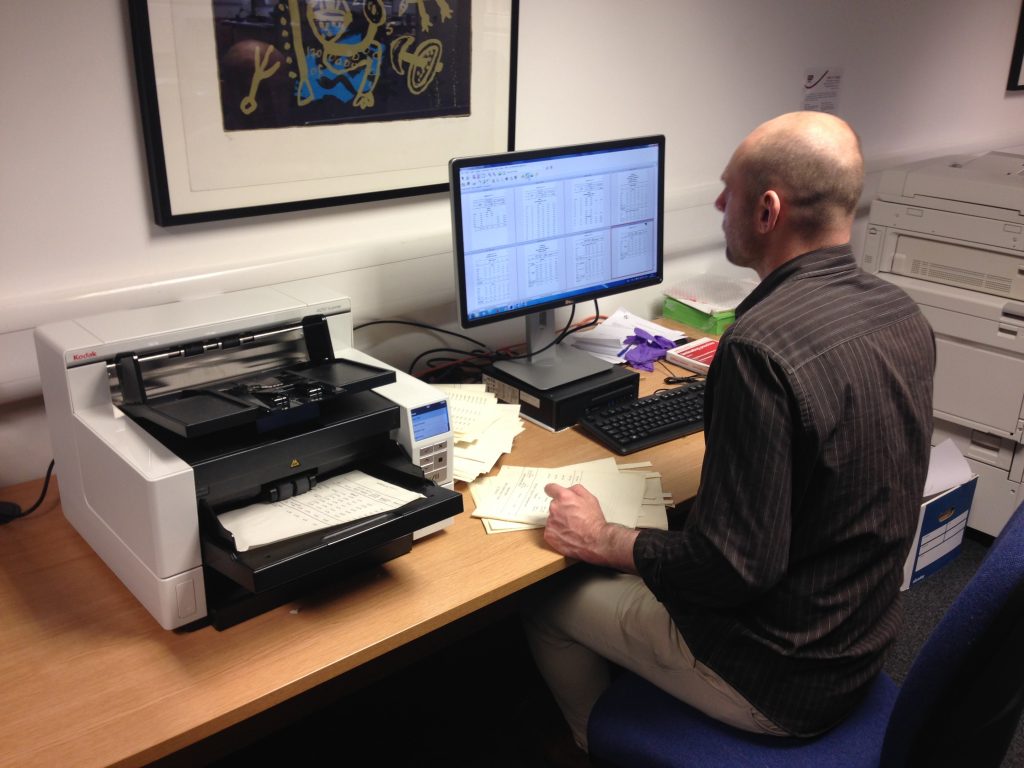Stock take completed, equipment purchased and staff in place: the digitisation of the Library’s PhD thesis collection has begun!
In January 2016 we secured funding to complete the digitisation of the Library’s PhD thesis collection. 10,000 PhDs are already accessible through ERA, our online institutional repository, and this project will digitise the remaining 15,000, thereby making unique Edinburgh research available to all.
Since January we have undertaken a full inventory of the collection (a big thank you to Paul, Aaron, Laura, Aoife, Ruby, Michael, Gillian, Joanne, Marco, Christina, Lorna, Ralph and Danielle), bought scanning equipment, PCs and furniture, and transformed one side of the Library Annexe work room into a fully functioning mass digitisation workshop.

Stock take underway at the Main Library and Library Annexe
Perhaps most importantly, this Monday we welcomed Paul Choi, Fiona Mowat, Giulia Giganti, Aoife O’Leary McNeice and Michael Logan to the Projects & Innovations team as Project Digitisation Assistants. This new team will spend the next two years digitising the collection by scanning theses and performing a number of pre and post scan processes.
The collection dates from the early 1600s to the present day and includes theses of varying sizes, styles and formats. Duplicate theses will have their spines removed using an IDEAL 4705 Guillotine and will then be fed through the 100-page-per minute Kodak i4250 document scanner. These copies will be recycled, freeing up around 500 linear metres of storage space in the Main Library building.

Kodak i4250 document scanner
Unique theses will be scanned manually using a Copibook Cobalt flatbed scanner and any items in poor condition will receive conservation treatment.

Copibook Cobalt book scanners
Following scanning, digital images will undergo several post-processing procedures, such as de-skewing, cropping and de-blurring,and will also be OCR-ed to enable keyword searching. Fully processed files will be uploaded to ERA as searchable multipage PDFs.
We’ll be setting up a project blog and aim to provide regular updates – in the meantime, please contact Gavin.Willshaw@ed.ac.uk if you have any further questions.
